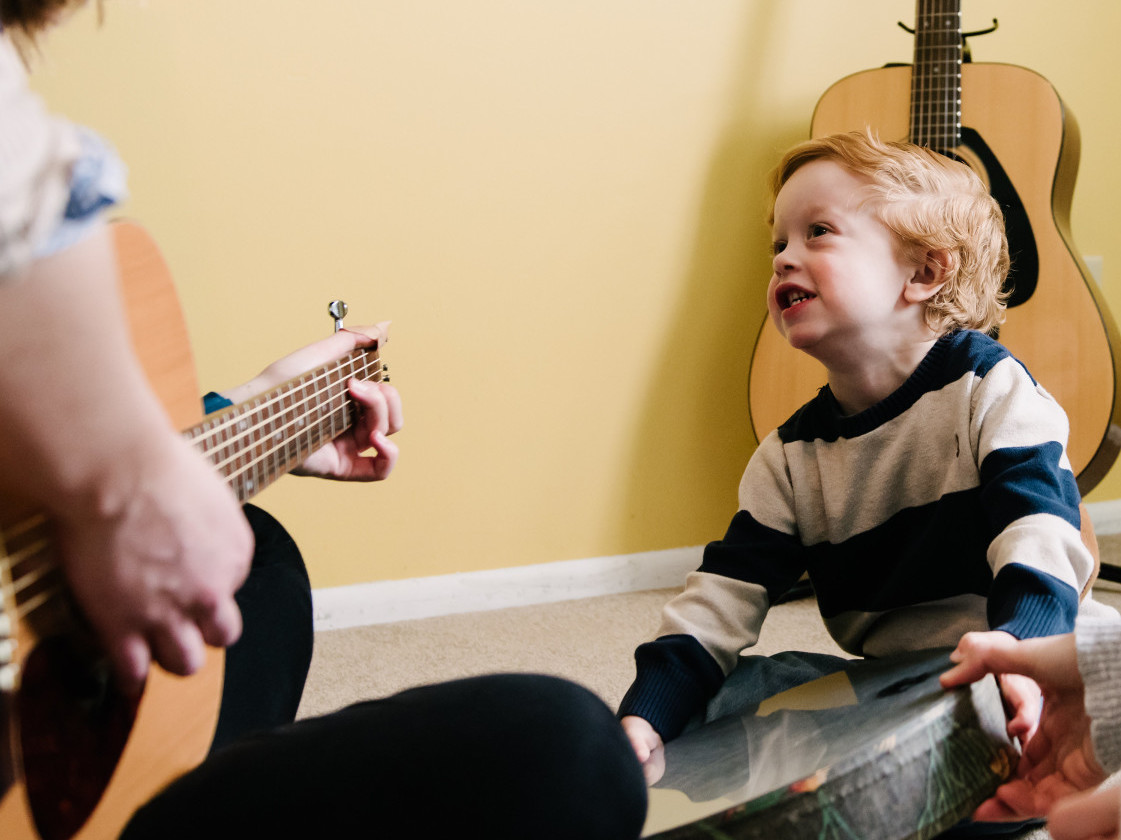Getting the Words Out: Using Music to Develop Speech
Does your child struggle to get words out? Do they know what they want to say but can’t form the words?
Perhaps this will help.
Kids develop speech in a fairly predictable manner, with certain milestones being considered “typical” at certain ages. For example, most babies at 7-9 months may produce more varied sounds such as b, p, m, n, d, w, y with babbling and vocal play. While most parents aren’t aware of these particular milestones, you do know when your child isn’t talking as much as the same-age-kid-next-door.
And when your kid isn’t talking as much as you think they should be, it’s natural to feel concerned.
The thing is, for a lot of kids, even if language is delayed a bit it will catch up in time. But for others there may be other factors involved, such as apraxia or developmental delays, making it difficult for them to reach those milestones without outside help.
Whatever the case, it is difficult as a parent to see your child struggle to say what they want so desperately to say, and more importantly to have others understand them.
Music Therapy is a fantastic resource for helping children develop communication skills, especially when paired with a qualified Speech and Language Pathologist (SLP). Music Therapy and Speech Therapy work beautifully together because the SLP has extensive knowledge of speech and language development, while the music therapist is trained in how to use music to accelerate language changes and help your child make significant progress.
So why music?
Music lights up the whole brain, including areas responsible for speech, and it also accesses other areas of the brain that may enable a child to sing even if they do not speak. So on a neurological level it can literally prime the brain to get those words out.
And guess what? You can try it at home!
One of the techniques a Music or Speech Therapist might use is to put a target word at the end of a musical phrase, then leave off that word when you sing and encourage your child fills in the gap.
Most kids will not be successful with this right away, but the more you do it, the more likely they are to succeed as time goes on. In fact their likelihood of succeeding with music is much higher than if you simply prompt your child with “say _____”. When you add the music, it lights up more of the brain and makes the child more likely to get the words out.
Wanna see how you can do it?
Check out this short video from Harmony Helps to see how it’s done.
Then give it a try and let us know how it goes!
See more tips and videos like this at www.harmonymusictherapy.com/harmony-helps
https://harmonymusictherapy.com//www.youtube.com/watch?v=Wj6WaYTpU88&t=1s

